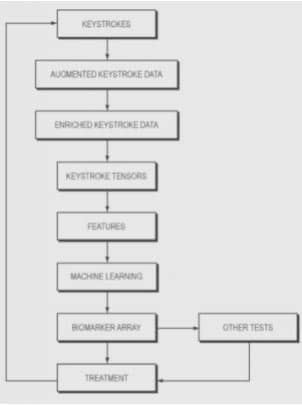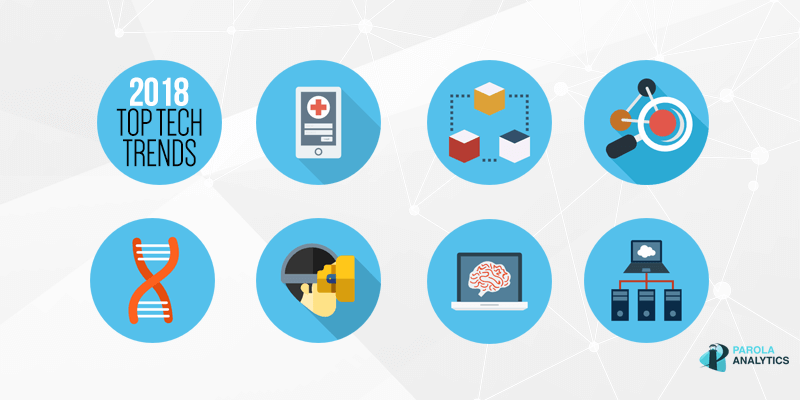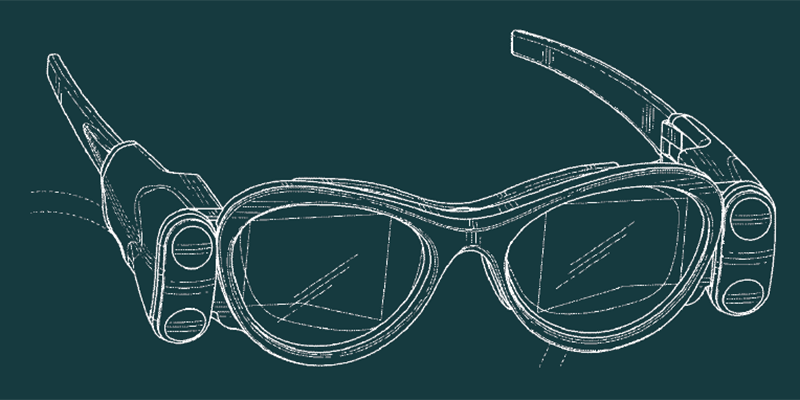Cambridge, Massachusetts-based nQ Medical is patenting an artificial intelligence that can assess a person’s health based on how they type.
In today’s high-tech society, keyboards have surpassed handwriting as the standard means of written communication. The patent application seeks to take advantage of the ubiquitous practice of typing as a way to detect symptoms of cognitive impairment much earlier than conventionally possible.
Dementia, for instance, is diagnosed in nearly 10 million people every year. There are subtle signs that one’s cognitive abilities are in the early stages of deterioration, such as struggling with communication or finding the right word—something nQ Medical’s invention might be able to detect.
More debilitating, readily apparent symptoms develop in the later stages of dementia, but an early diagnosis makes it possible to delay cognitive decline via drugs or therapy. It also allows dementia patients to express their wishes for the future while they have the mental capacity to do so.
The technology described by nQ Medical is expected to help diagnose disorders of not just the nervous system. A person’s typing characteristics can change due to a wide variety of diseases: from Alzheimer’s disease, Parkinson’s disease, and multiple sclerosis; to stroke, arthritis, carpal tunnel syndrome, and HIV/AIDS.
First off, reference typing data is gathered either in a natural or semi-controlled setting, where restrictions on the timing, content, or length of the text being typed are in place.
A computer breaks down a user’s raw typing data into heuristically selected “features.” How fast a person types, how long they hold each key, and how often they trigger autocorrect are among the factors included when descriptive/inferential statistics are applied to keystroke data. The system may also account for tap precision in touchscreen keyboards and the context of a typing session, based on the application being used.
![Fig. 1. A computer analyzes aspects of a person’s keystrokes [left] performed across a number of keyboard zones [right].](https://parolaanalytics.com/wp-content/uploads/2021/08/Fig.-1.-A-computer-analyzes-aspects-of-a-persons-keystrokes-1.jpg)
Fig. 1. A computer analyzes aspects of a person’s keystrokes [left] performed across a number of keyboard zones [right].
The features are fed into one or more machine learning algorithms, which may assess the presence, change, severity, or probability of one or more symptoms for one or more diseases. These assessments may cover a user’s psychological, cognitive, psychomotor, or motor functions.
The algorithms are trained using typing data labeled according to one or more clinical scales indicating disease severity. The Dementia Rating Scale-2 or DRS-2, for example, is common in both research and clinical practice, but may also be used as a reference for labels pertaining to the cognitive status of older adults. The patent application mentions several clinical scales that may help train the technology’s machine learning algorithms.
But nQ Medical argues that training data is better labeled with values indicating precisely which functions a person is impaired in, instead of scores on standard clinical scales. This approach provides standardized representations of individuals’ clinical status, including their motor, cognitive, and behavioral functions. More importantly, it facilitates biomarker development, validation, and interpretation. Biological markers are objective, reproducible indications of one’s medical state, as opposed to symptoms reported by the patient. Algorithms that can recognize biomarkers are able to provide a true picture of functional impairment, covering a wide range of health conditions rather than being limited to a particular disease or symptom.
After generating a diagnosis, the computer may recommend drugs or non-pharmacologic treatments to the patient. Additionally, the assessment may be made available for persons such as medical professionals, hospital or medical workers, or insurers.

Fig. 2. A flowchart of a method of assessing a health condition or functional state of a user.
The artificial intelligence application proposed by nQ Medical has the potential to create more value out of a common way humans interact with technology. It could give people outside clinical settings access to early diagnoses for a multitude of disorders. While Big Data frontrunners like Microsoft and Google rightly limit their monitoring of keyboard usage for the sake of privacy protection, an opposite approach empowered by machine learning might prove acceptable for the sake of people’s wellbeing.
The featured patent application, “Methods and Apparatus for Assessment of Health Condition or Functional State from Keystroke Data”, was filed with the USPTO on December 18, 2020 and published thereafter on August 5, 2021. The listed applicant is nQ Medical, Inc. The listed inventors are Teresa Arroyo-Gallego, Ashley Holmes, Rahul Mahajan, Ijah Mondesire-Crump, Tianning Han.






